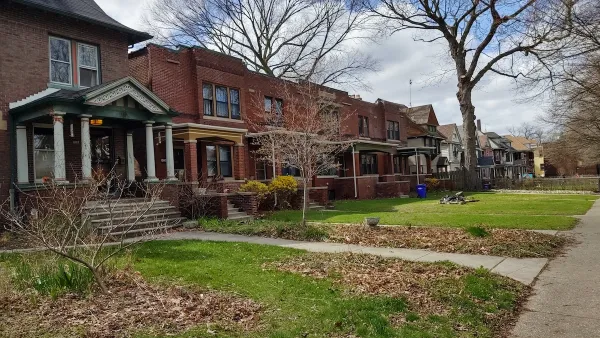A federal bankruptcy judge’s rejection of a deal between Detroit and its creditors will stall the City’s access to casino funds it needs to restore services and speedily exit bankruptcy. In the big picture, however, the decision may benefit Detroit.
“For Detroit, the road in and out of U.S. bankruptcy court is paved with casino money,” write Kevin Pierog and Joseph Lichterman.
Revenue from Detroit’s casinos - its third largest and most reliable funding source - has been tied up since 2009 when, as part of a disastrous derivatives swap deal, the revenue was pledged as collateral to creditor banks. This allowed the City to avoid making what would have been a devastating $400 million payment to the banks but now leaves the much needed casino revenue out of reach.
"’Every day that we don't have access to casino revenue, we cannot make the necessary investment in this city to provide for the health, safety and welfare of the citizens,’ [City Emergency Manager Kevyn] Orr said in a deposition last August, shortly after bankruptcy was declared.”
“[Judge Rhodes] put the casino money at the center of debate by declaring that Detroit probably did not have a right to pledge that money as collateral in the first place under state law. He suggested Detroit might win in a bid to invalidate the swaps altogether if a court were to find the city had no right to pledge the casino money.”
FULL STORY: Detroit's Path Into And Out Of Bankruptcy Is Paved With Casino Money

Maui's Vacation Rental Debate Turns Ugly
Verbal attacks, misinformation campaigns and fistfights plague a high-stakes debate to convert thousands of vacation rentals into long-term housing.

Planetizen Federal Action Tracker
A weekly monitor of how Trump’s orders and actions are impacting planners and planning in America.

In Urban Planning, AI Prompting Could be the New Design Thinking
Creativity has long been key to great urban design. What if we see AI as our new creative partner?

King County Supportive Housing Program Offers Hope for Unhoused Residents
The county is taking a ‘Housing First’ approach that prioritizes getting people into housing, then offering wraparound supportive services.

Researchers Use AI to Get Clearer Picture of US Housing
Analysts are using artificial intelligence to supercharge their research by allowing them to comb through data faster. Though these AI tools can be error prone, they save time and housing researchers are optimistic about the future.

Making Shared Micromobility More Inclusive
Cities and shared mobility system operators can do more to include people with disabilities in planning and operations, per a new report.
Urban Design for Planners 1: Software Tools
This six-course series explores essential urban design concepts using open source software and equips planners with the tools they need to participate fully in the urban design process.
Planning for Universal Design
Learn the tools for implementing Universal Design in planning regulations.
planning NEXT
Appalachian Highlands Housing Partners
Mpact (founded as Rail~Volution)
City of Camden Redevelopment Agency
City of Astoria
City of Portland
City of Laramie





























